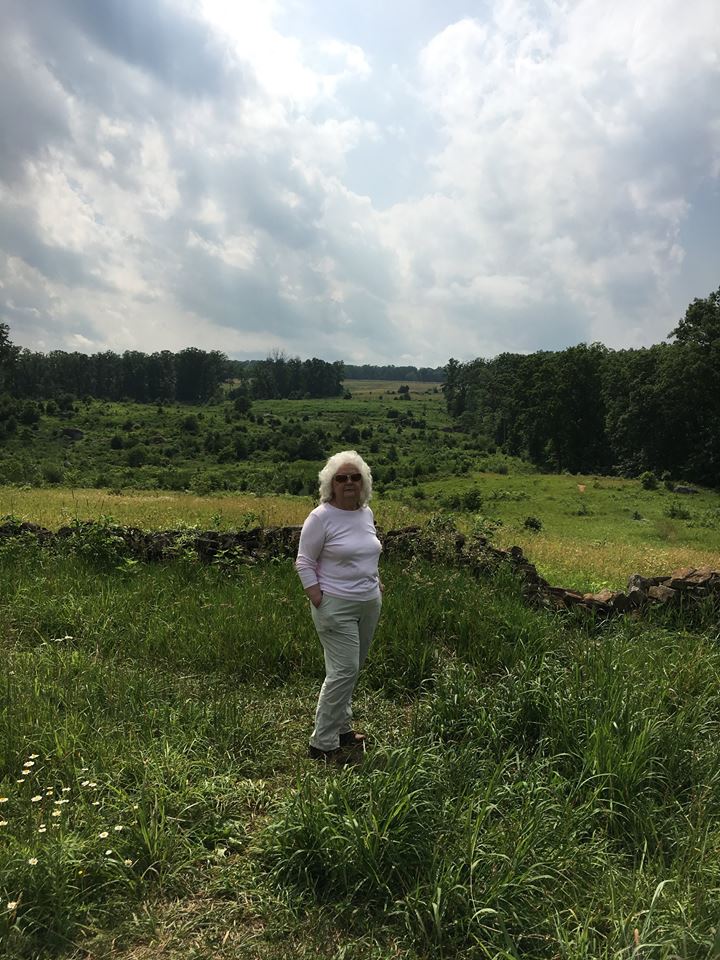by Carole Hemingway
Approximately seven years ago, I began thinking about writing a book on the U.S. Civil War. I started researching, made 11 trips to Gettysburg, Pennsylvania, and soon discovered an incredibly complex subject. I found myself especially fascinated with Confederate General Robert E. Lee, Union Army General Ulysses S. Grant, and Confederate General James Longstreet. These three men weren’t just Civil War Generals — they were flesh and blood, real people with strengths and weaknesses and families who loved them.
Going to war and fighting for your country — can there be a greater sacrifice? It’s a sacrifice not only for the soldier, but for everyone who cares for and supports him or her.
MAJOR SACRIFICES
The Civil War ended 154 years ago. It was the beginning of the end — the result of ‘cause and effect’. There was no way to soften the pain of defeat for Robert E. Lee and his Army of Northern Virginia. There were major sacrifices on both sides of the North and the South.
When the Civil War ended in 1865, the struggle had reached a point where further resistance was hopeless. The competition ended and negotiations opened in Ulysses S. Grant’s favor. He insisted on Lee’s “unconditional surrender.”
Both sides endured suffocating heat in their wool uniforms. Gettysburg, Pennsylvania was part of our nation’s “baptism of fire.” The Battle of Gettysburg (July 1, 2, and 3, 1863) is considered by most historians to be the turning point of the American Civil War. Fifty thousand lives were lost in three days. General Lee’s defeat by the Army of the Potomac forced his Confederate forces to retreat and surrender to Grant. For everyone, the Civil War left horrific scars. Yet Lee and Grant reached an agreement; and it was one made in peace.
A SMILE BETWEEN FOES
Grant was a rare and beautiful man, a strong and brutal general, yet compassionate, moving, and wise, with a gentle side. He liked Lee. Everyone pretty much did.
On the eve of Lee’s surrender, April 8, 1865, followed by the Army of the Potomac, Grant stayed on Lee’s rear-end like a tailgater the entire day. Lee was a man of much dignity with an impossible face to read. This “tug of war” was coming to an end. There was a sixteen year age difference between the two men, Lee being the elder.
There were a lot of guns and bullets (skirmishes) leading up to the April 9, 1865 Peace Treaty between the North and the South. Grant could keep up the pressure on Lee’s army, who were short of everything except courage. When Lincoln asked Grant how long the bloodshed could go on, Grant replied, “Lee is a real general, Mr. President. He will continue to fight even if there is just a sliver of a chance for success.”
Grant did what he had to do to force a surrender. Lee was waiting for a supply train and Grant had the train stopped, knowing it was aimed at Lee’s vulnerabilities. Grant sent his cavalry to cut the railroad lines which was Lee’s only remaining link to the outside world.
The longer Lee prolonged the struggle was murder by any other name and every man in his command would be killed or captured. Lee was the country as far as his men were concerned, and thousands more would have died for him Grant bore down on Lee’s army from the rear; all that remained was for Grant to finish the job. Lee’s army was boxed in on the west, south, and east. It was futile marching north, since there was no food or anything else useful in that direction. Lee was cornered, trapped. He knew it.
A courier delivered a series of hand-written letters between Grant and Lee. It was one week before Easter — April 8, 1865, Palm Sunday. The day dawned bright; a good day to celebrate the ‘Prince of Peace.’
Before Lee and Grant were to meet formally in the late afternoon of April to negotiate terms of surrender. Lee sent a letter to Grant wanting to meet with him privately that mid-morning. On April 8, Lee wrote to Grant: “I should be pleased to meet you at 10 a.m. tomorrow on the old stage road to Richmond, between the picket lines of the two armies.”
Legend has it, Grant entered the apple orchard at Appomattox Courthouse, Virginia, on the side of a hill, and there was Lee, sitting under an apple tree, his back against it. He was chewing on an apple. Grant rode up to Lee and dismounted his horse. They smiled at each other. We will never know the conversation between two honorable Generals — both great men, loved and respected by their families and their troops, both willing to give the ultimate sacrifice to die for their country.
American military and women continue today to sacrifice their lives for our country and to protect our freedoms. We mustn’t ever forget that. I keep thinking of John 15:13, “Greater love hath no man than this, that a man lay down his life for his friends.” And to that we might add, his country.

Carole Hemingway is an internationally regarded author, speaker, and historical writer. She is writing three books about Gettysburg.
